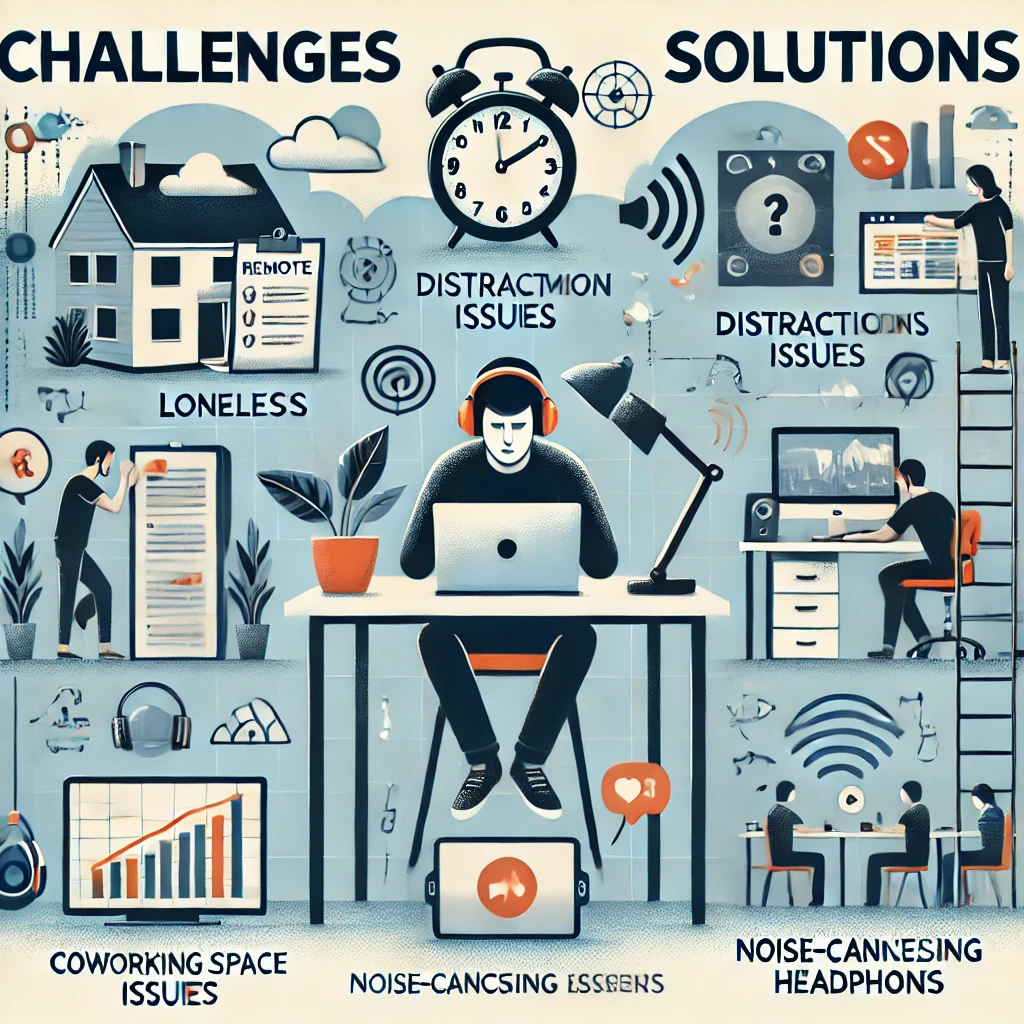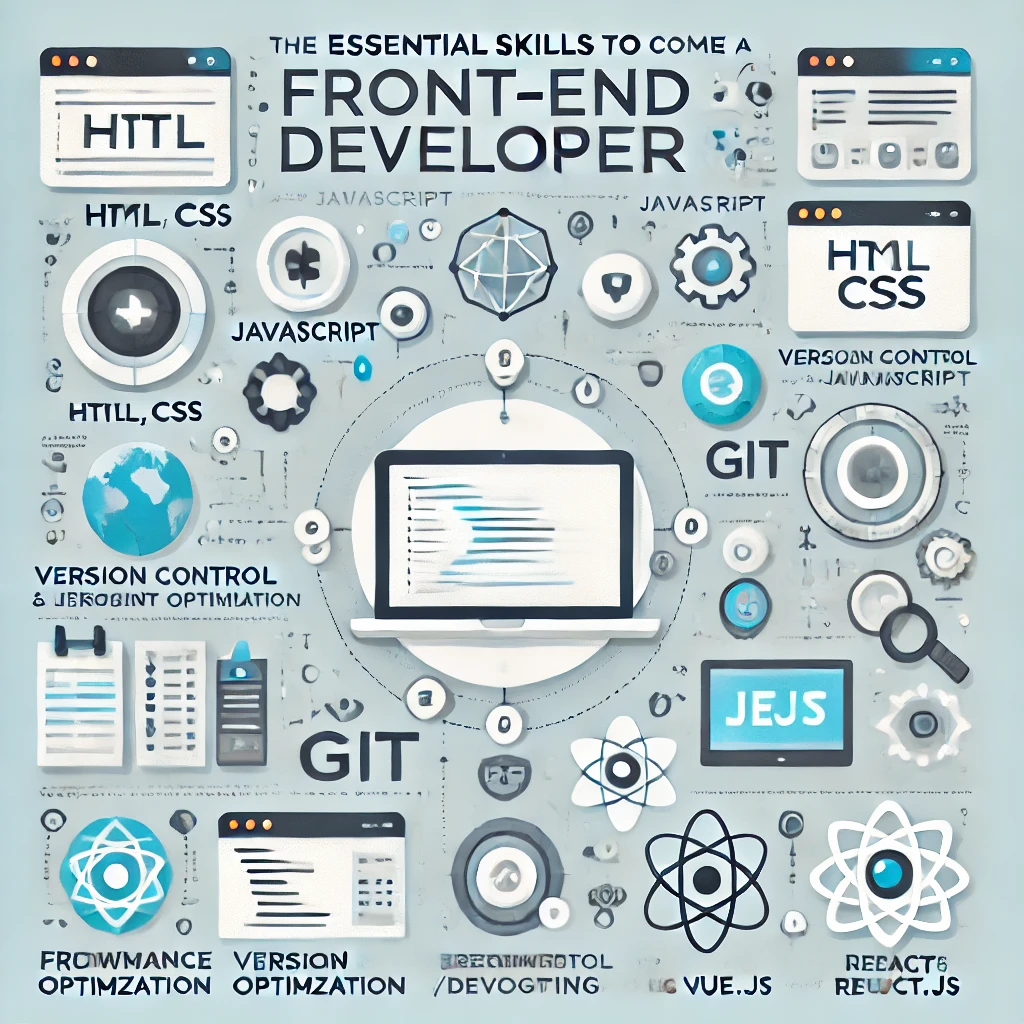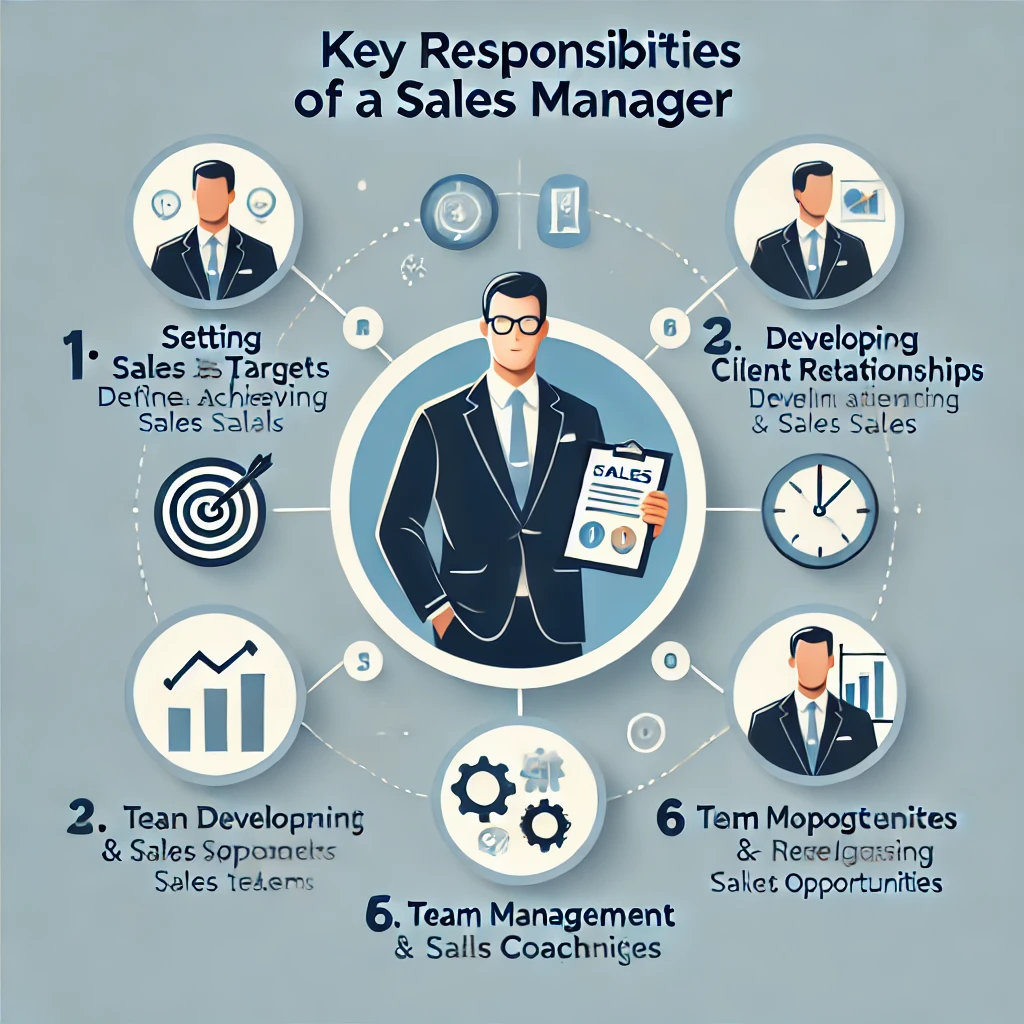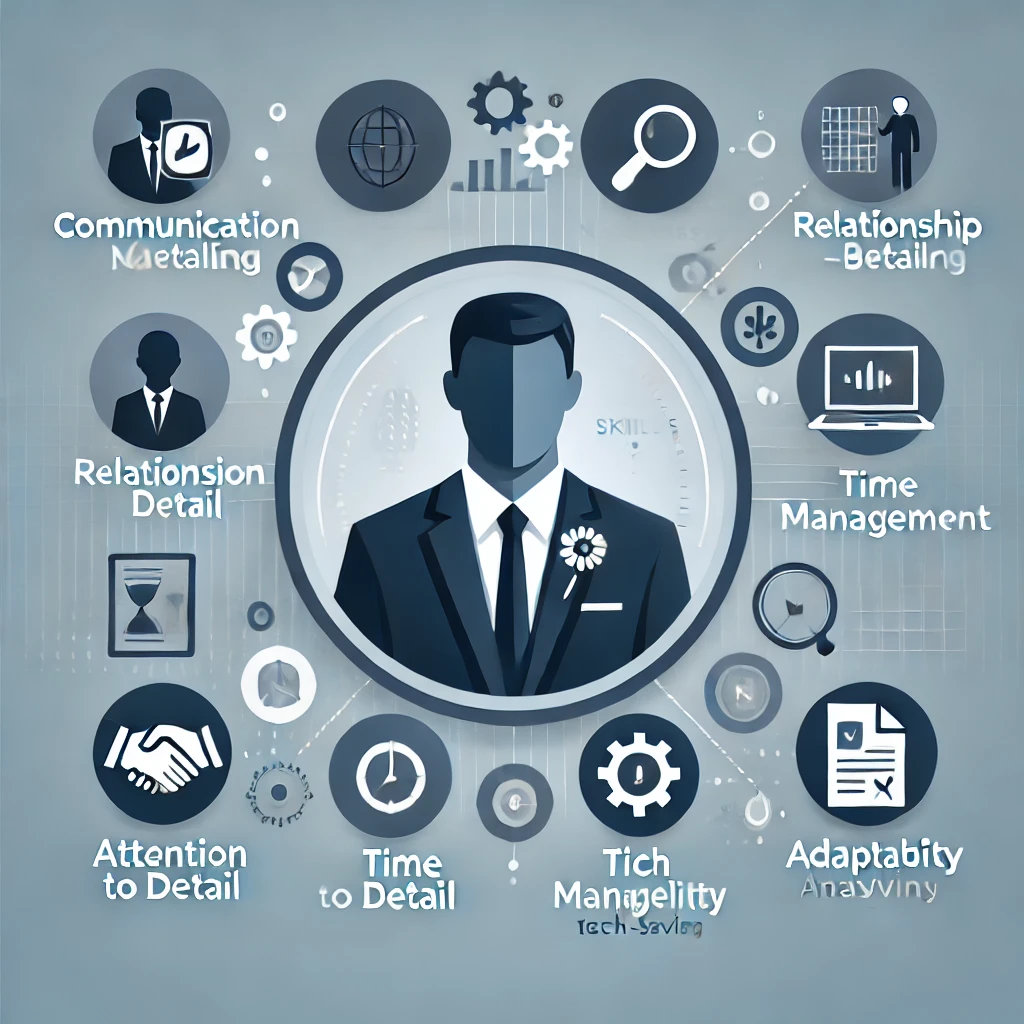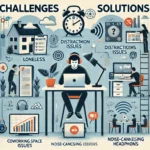software development means the art of creating, maintaining, and improving software systems that power our digital world. Software developers design applications, build systems, and ensure smooth functionality. It involves acquiring technical skills, practicing problem-solving, and embracing a mindset of continuous learning.
8 Main Qualities of a Software Developer
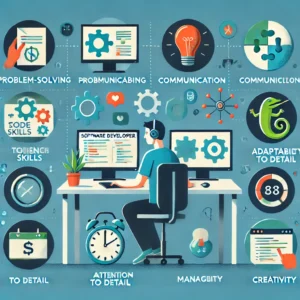
Qualities of a Software Developer.
To become a successful software developer, you need a combination of personal traits and a strong work ethic. Below are the key qualities explained in detail:
1. Problem-Solving Skills.
Software developers constantly solve problems, whether fixing a bug in code or designing a system to meet specific needs. This means they must analyze issues logically and think critically about addressing them. A good developer enjoys tackling challenges and figuring out how to make things work efficiently.
2. Curiosity and Passion for Technology.
The tech industry changes quickly, with new tools, languages, and frameworks emerging constantly. A great software developer is curious about these changes and enthusiastic about learning. They experiment with new ideas, stay updated on industry trends, and genuinely enjoy creating software.
3. Adaptability.
Projects often evolve, and priorities can shift rapidly in the tech world. Developers must adapt to changes, whether it’s learning a new tool, modifying a feature based on user feedback, or working with a new team. Flexibility helps developers stay productive and deliver quality results even when plans change.
4. Strong Collaboration Skills.
Software development is rarely a solo activity. Developers work with other programmers, designers, project managers, and clients. Clear communication is essential to understand requirements, share ideas, and solve problems as a team. Developers who collaborate well create better software and build stronger professional relationships.
5. Attention to Detail.
Writing code involves precision. A single syntax error can cause a program to malfunction. Successful developers pay close attention to every line of code, ensuring accuracy and efficiency. They also carefully test their work to catch and fix mistakes early.
6. Creativity.
Developing software is not just about technical skills; it’s also a creative process. Developers must think outside the box to design innovative solutions and user-friendly applications. Creativity helps them approach challenges from unique angles and deliver outstanding software.
7. Time Management.
Software development often involves deadlines, whether it’s launching a new feature or delivering a project to a client. Developers must prioritize tasks, manage their schedules, and deliver high-quality work on time. Strong organizational skills make this easier to achieve.
8. Persistence.
Not all problems are solved quickly. Debugging errors, optimizing code, and finding the best solutions can take time and effort. A great developer stays persistent, pushing through setbacks until they achieve the desired outcome.
RELATED BLOG: 10 Common Skills Required to Become a Virtual Assistant
Steps to becoming a software developer.
Step 1:
Understand the Role of a Software Developer Before diving into the how it’s crucial to grasp the what. Software developers create applications and systems that solve problems or provide services. Here are some key responsibilities of a software developer:
- Writing and Testing Code: Creating reliable and efficient software using Python, Java, or C++.
- Collaborating with Teams: Working with designers, analysts, and other developers to build solutions.
- Debugging and Maintenance: Fixing issues and optimizing software for better performance.
- Understanding User Needs: Developing software that meets specific user requirements.
- Staying Updated on Trends: Keeping pace with emerging technologies and industry standards.
Step 2:
Acquire the Necessary Education and Training While some developers are self-taught, most pursue formal education to build a strong foundation.
- Bachelor’s Degree: Computer science, software engineering, or a related field provides essential knowledge.
- Bootcamps: Intensive coding boot camps offer practical skills and hands-on experience in a shorter time frame.
- Online Courses: Platforms like Coursera, Udemy, and freeCodeCamp allow you to learn independently.
Step 3:
Master Essential Skills To succeed as a software developer, you’ll need to develop technical and soft skills.
- Technical Skills Programming Languages: Proficiency in Python, JavaScript, and C#.
- Version Control: Using tools like Git for collaboration. Databases: Understanding SQL and NoSQL for managing data.
- Frameworks: Familiarity with tools like React, Angular, and Django. Problem Solving: Building algorithms and efficient solutions.
- Soft Skills Communication: Explaining technical concepts clearly. Teamwork: Collaborating effectively with others.
- Time Management: Prioritizing tasks to meet deadlines.
Step 4:
Build a Strong Portfolio A portfolio showcases your skills and projects to potential employers. Include:
- Personal Projects: Demonstrate creativity and technical ability.
- Team Projects: Show collaboration experience.
- Open Source Contributions: Highlight your initiative and community involvement.
Step 5:
- Gain Practical Experience Internships: Entry-level positions provide hands-on training and networking opportunities.
- Freelancing: Take on projects to build real-world experience.
- Hackathons: Participate in coding competitions to sharpen your skills.
Step 6:
Apply for Jobs and Advance Your Career Once you’ve built a strong foundation, it’s time to enter the job market.
Popular Job Roles for Software Developers
- Frontend Developer
- Backend Developer
- Full Stack Developer
- Mobile App Developer
- Game Developer
Where to Look for Opportunities
- Job boards like LinkedIn, Glassdoor, and Indeed.
- Networking events and tech meetups.
- Company career pages.
Step 7:
Specialize in a Niche As you progress in your career, specializing can set you apart from other software developers. Specializations allow you to focus on a specific area of interest and expertise.
Popular Specializations for Software Developers:
1. Web Development.
- Frontend Development: Focuses on creating user interfaces and ensuring a seamless user experience using HTML, CSS, and JavaScript.
- Backend Development: Manages server-side logic, databases, and application performance with tools like Node.js, Python, and Ruby.
- Full Stack Development: Combines frontend and backend skills, offering end-to-end solutions.
2. Mobile App Development
- Develop apps for Android and iOS platforms using technologies like Flutter, React Native, and Swift.
3. Data Science and Machine Learning
- Dive into big data, AI, and predictive modeling using Python, TensorFlow, and R.
4. Cybersecurity
- Ensure software and systems are secure, protecting against cyber threats.
5. Game Development
- Use engines like Unity and Unreal Engine to create immersive games.
Step 8:
Stay Updated in the Field Technology evolves rapidly, and staying relevant is essential for every software developer.
Ways to Stay Updated:
- Online Learning: Enroll in advanced courses on emerging technologies.
- Join Developer Communities: Platforms like GitHub, Stack Overflow, and Reddit foster collaboration and knowledge-sharing.
- Subscribe to Tech News: Follow websites like TechCrunch, Hacker News, and Smashing Magazine.
- Attend Conferences and Meetups: Events like Google I/O and Microsoft Build expose you to industry trends.
Step 9: Embrace a Growth Mindset Success as a software developer requires a willingness to learn and grow continuously. Whether solving a challenging bug or mastering a new programming language, your adaptability and resilience will shape your career.
RELATED BLOG: Challenges and Future of Data Scientist
Bonus tips for aspiring software developers.
1. Start Small, Think Big: Begin with simple projects and gradually work on more complex applications.
2. Participate in Open Source Projects: Contributing to open-source communities improves your coding skills and builds your reputation.
3. Network Actively: Join LinkedIn groups, attend hackathons, and connect with fellow developers.
4. Practice Coding Regularly: Platforms like LeetCode, HackerRank, and Codewars offer challenges to sharpen your skills.
5. Seek Mentorship: Learning from experienced developers can accelerate your growth.
How to become a software developer.
- Understand the Role: Know the responsibilities and expectations of a software developer.
- Build Your Skills: Master programming languages, frameworks, and problem-solving.
- Gain Experience: Intern, freelance, and work on personal projects to build your portfolio.
- Specialize: Find a niche to differentiate yourself in the job market.
- Keep Learning: Stay current with industry trends and continuously upskill.
Anyone can embark on this fulfilling career path with determination and consistent effort.
Encouragement for Aspiring Software Developers.
Remember, every software developer started as a beginner. It’s okay to feel overwhelmed at first, but your confidence and competence will grow with each line of code. Stay curious, remain persistent, and believe in your ability to solve problems and create meaningful software.
RELATED BLOG: Data Analyst: Steps to Become a Data Analyst
How to Network Effectively as a Software Developer:
1. Attend Industry Events: Conferences, tech meetups, and hackathons are great places to meet like-minded professionals.
2. Leverage Online Platforms: Use LinkedIn and GitHub to showcase your projects and connect with peers and recruiters.
3. Engage in Developer Communities: Participate in forums and discussions on platforms like Stack Overflow or Reddit.
Balancing Soft and Technical Skills.
While learning technical skills, soft skills play an equally vital role in your success as a software developer. Employers value developers who can collaborate effectively and adapt to changing requirements.
Key Soft Skills for Software Developers:
- Problem-Solving: Think critically to tackle complex challenges and develop effective solutions.
- Communication: Articulate ideas, whether explaining a technical concept to a non-technical client or discussing strategies with your team.
- Team Collaboration: Work cohesively with designers, managers, and fellow developers to deliver high-quality projects.
- Time Management: Organize tasks efficiently to meet deadlines and handle multiple priorities effectively.
- Adaptability: Be open to learning new tools, frameworks, and methods as the tech landscape evolves.
Conclusion.
Building connections in the tech industry is just as important as developing coding skills. Networking gives you valuable advice from experienced professionals and helps you find job opportunities that aren’t advertised. It also keeps you updated on industry trends and new technologies. By focusing on networking, you boost your career growth and create a supportive community that helps you succeed in the tech field.

